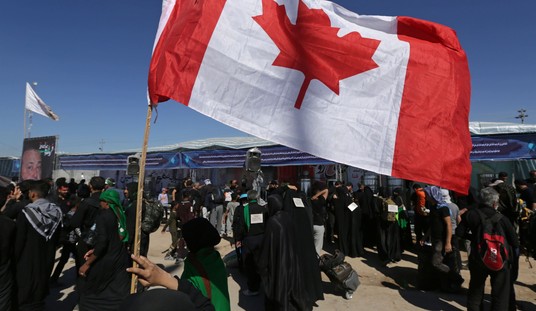Many have noted the reluctance of the Obama administration to speak out against the Moammar Gaddafi regime in Libya as its security forces attack rebels in the streets of Tripoli and Benghazi. By this time in the Egypt unrest, Obama had already demanded a “transition” from power for US ally Hosni Mubarak and had his press secretary emphasize that Obama meant “immediately.” Libya’s dictatorship has been uniformly hostile to the US, and Obama’s silence on Gaddafi’s position seems rather strange in comparison.
The Washington Post and McClatchy both offer one possible reason why the US has hedged its formal statements:
As of Tuesday, the State Department had been unable to get Libya’s permission to fly American citizens out of the country, officials said, prompting the U.S. government to temper its response to the Libyan crackdown.
State Department spokesman P.J. Crowley said Libyan officials had promised over the weekend to support U.S. efforts to evacuate Americans but that the necessary permits for charter flights hadn’t been granted.
“What we can’t figure out is whether there’s just chaos at the airport, which is entirely possible, or whether the Libyans are not cooperating,” Crowley said in an interview.
With air evacuations seemingly not an option, the government chartered a ferry to take U.S. citizens to Malta on Wednesday. The U.S. embassy said on its Web sites that Americans should bring the necessary travel documents, medications and essentials such as food, water and diapers with them for the six-hour journey.
McClatchy’s report is a little more specific:
With hundreds of U.S. citizens trapped for now in Libya, the Obama administration is responding cautiously to leader Moammar Gadhafi’s brutal attempt to suppress a rebellion, fearing that the wrong move might bring retaliation against Americans, U.S. officials said Tuesday.
The fate of about 600 U.S. citizens, along with 35 non-essential Embassy staff, whom the State Department is trying to evacuate, puts President Barack Obama in an excruciating diplomatic bind.
Despite the regime’s ongoing massacres that have killed hundreds of civilians, and executions of security personnel who refuse to take part in the atrocities, Obama hasn’t called on Gadhafi to leave. That’s a striking difference from his role in easing Egyptian President Hosni Mubarak from power after a much less bloody revolution earlier this month.
The same could have been true in Egypt, but even with the unrest in Cairo, the situation was more stable. In Egypt, everything hung on the army, which waited for several days before deciding which horse to back in the crisis. The army is the direct beneficiary of support from the US and would have been a more reliable partner for safety of essential US personnel — and the US got non-essential personnel and other Americans out of Egypt quickly when the crisis arose.
The same is obviously not true in Libya. The security forces are openly hostile to the US, and they’re no longer in control of the country. No one really knows what the rebellion will produce in terms of government if they succeed in overthrowing Gaddafi’s reign of terror, and the rebels clearly cannot secure transit points out of the country at the moment.
The White House has a worst-of-all-possible-worlds scenario unfolding in Libya as it concerns Americans trapped in the country. Until the US can safely get Americans to Malta or anywhere else — even Egypt and Tunisia don’t look bad at the moment — Obama can’t afford to provoke either side into attacking Americans, at least not if Obama thinks he will get blamed for any violence done to them. The last thing Obama needs is yet another evocation of the Carter presidency with a long, drawn-out hostage crisis in a radical Islamist state.
So it’s understandable that Obama has tempered his reaction in this case with that context in mind. But even so, here’s a better question — why didn’t the White House start evacuating Americans from Libya when Egypt erupted into political chaos? Did no one think that the uprisings just might spark a rebellion against one of the more brutal dictators in the region?








Join the conversation as a VIP Member